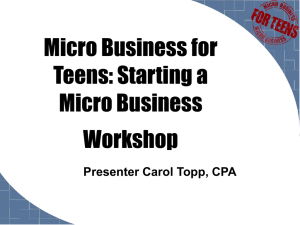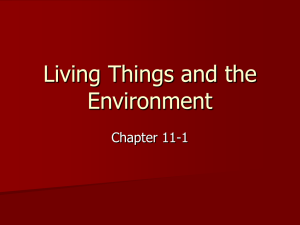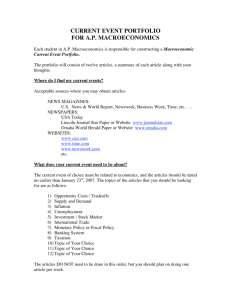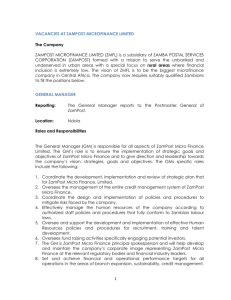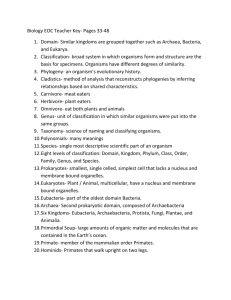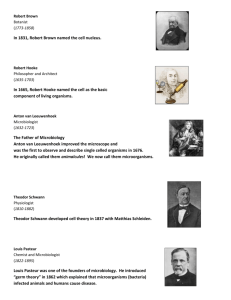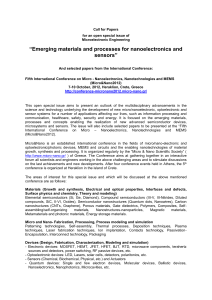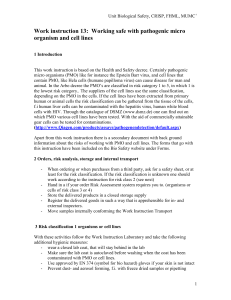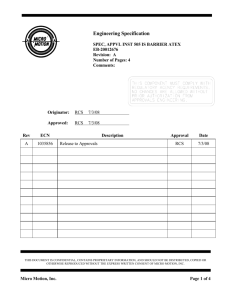5/6 Term: 2, 2015 Class Teacher: Mr Watkins Integrated Curriculum
advertisement
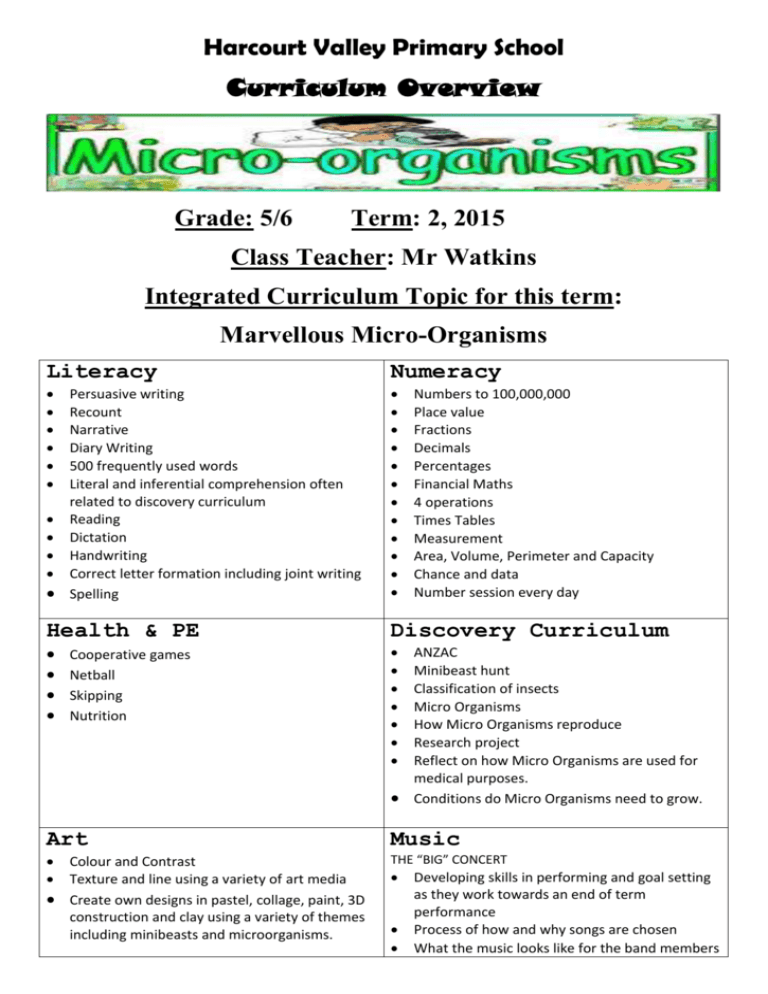
Harcourt Valley Primary School Curriculum Overview Grade: 5/6 Term: 2, 2015 Class Teacher: Mr Watkins Integrated Curriculum Topic for this term: Marvellous Micro-Organisms Literacy Numeracy Persuasive writing Recount Narrative Diary Writing 500 frequently used words Literal and inferential comprehension often related to discovery curriculum Reading Dictation Handwriting Correct letter formation including joint writing Spelling Health & PE Discovery Curriculum Cooperative games Netball Skipping Nutrition Numbers to 100,000,000 Place value Fractions Decimals Percentages Financial Maths 4 operations Times Tables Measurement Area, Volume, Perimeter and Capacity Chance and data Number session every day ANZAC Minibeast hunt Classification of insects Micro Organisms How Micro Organisms reproduce Research project Reflect on how Micro Organisms are used for medical purposes. Conditions do Micro Organisms need to grow. Art Music THE “BIG” CONCERT Colour and Contrast Texture and line using a variety of art media Create own designs in pastel, collage, paint, 3D construction and clay using a variety of themes including minibeasts and microorganisms. Developing skills in performing and goal setting as they work towards an end of term performance Process of how and why songs are chosen What the music looks like for the band members Learn words and dance routines Develop self -confidence and teamwork skills to support other students as they get ready to do their best to entertain our community on concert night. Set goals and be more aware of the processes behind the making of a concert. Learn about choreography and patterns in the song writing process as together they support each other Be good role models for the younger students as everyone learns about being the best performer that they can. French Homework (Comment y aller?) Classroom vocabulary Making a simple ‘carte d’identité’ (identity card) Cultural/geographical awareness of Canada and France Using ‘loin’ and ‘pres’ (‘far’ and ‘near’) to talk about distance Saying where you or someone lives Saying you know or don’t know how to do something Saying you can do something Modes of transport and professions related to them Children to read their take home books a minimum of 4 nights a week. Practise their spelling words for spelling test on Friday. Completion their homework sheet and return it to school on Wednesdays.
